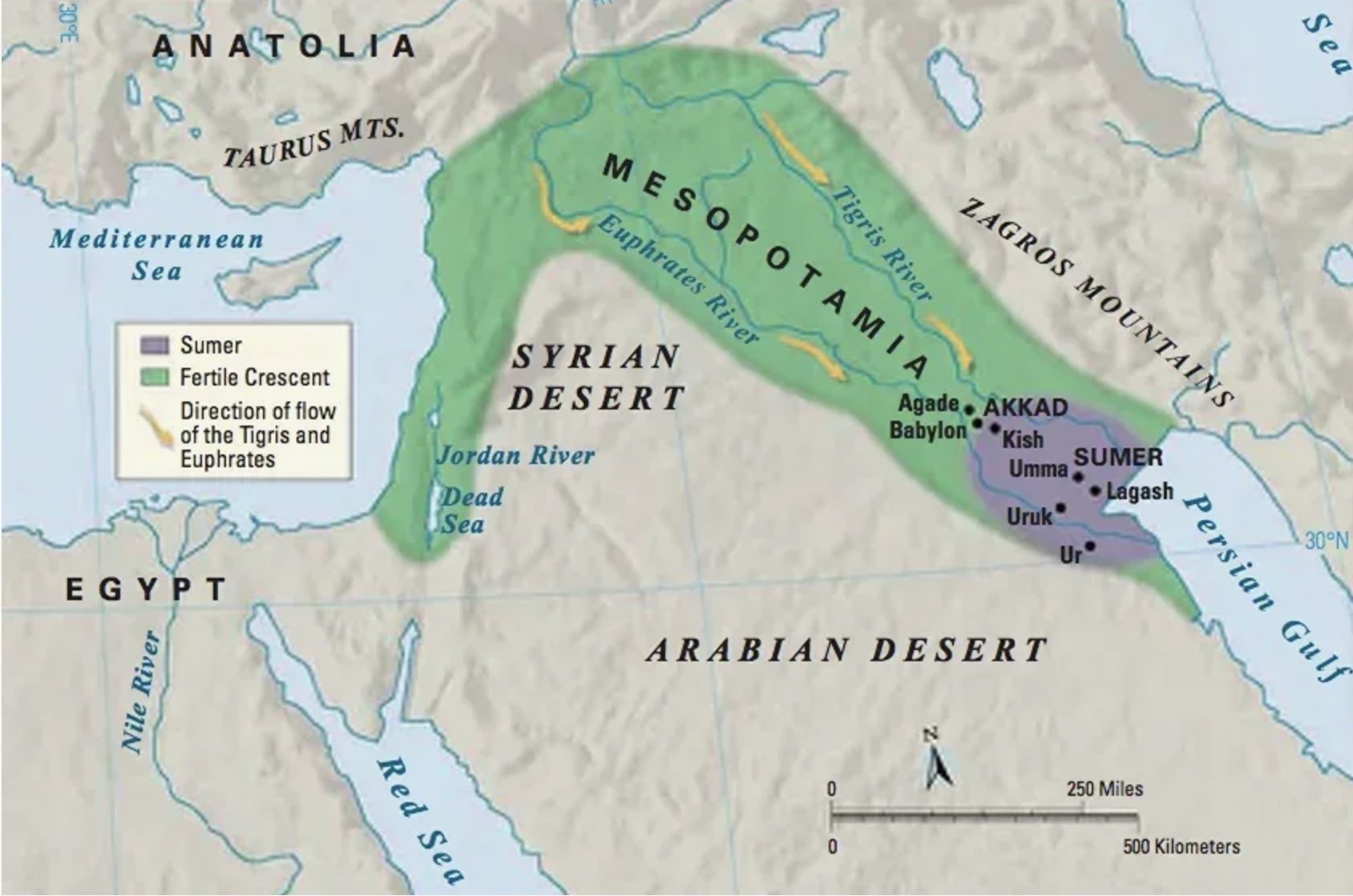The Sumerian Civilization — The First Chapter of Mesopotamia
- Подробности
- 1105
The Sumerian civilization is the earliest stage of the broader Mesopotamian civilization. “Mesopotamia” literally means “the land between the rivers” — the Tigris and the Euphrates. This fertile region became the cradle of some of the world’s first great cultures, and the Sumerians were its pioneers.
Sumerian Civilization

The Sumerians appeared around the 4th millennium BC in southern Mesopotamia. They established the first city-states such as Ur, Uruk, Lagash, and Nippur. Each had its own ruler, temples, and laws, but they shared a common language, religion, and traditions.
One of their greatest contributions was the invention of cuneiform writing — the world’s first known system of writing. They recorded trade, laws, myths, and literature, including the famous Epic of Gilgamesh. They built monumental ziggurats — step-shaped temples at the center of religious and political life. Their religion was polytheistic, with gods of the sky, earth, sun, moon, and fertility.
The Sumerians were also innovators in science and technology. They invented the wheel, developed advanced irrigation systems, made astronomical observations, and created the sexagesimal (base-60) system, which we still use to measure time (60 minutes in an hour, 60 seconds in a minute).
Their economy was based on agriculture, animal husbandry, and crafts. They also traded with surrounding regions. Although their city-states often fought wars, their achievements shaped the history of Mesopotamia. Later civilizations — the Akkadians, Babylonians, and Assyrians — built upon their legacy.
That is why historians see the Sumerian civilization as the foundation and first great chapter of Mesopotamian civilization.
Although the Sumerian city-states often fought wars with one another, their cultural and technological achievements shaped the history of Mesopotamia. In time, their political fragmentation made them vulnerable to conquest, and in the 24th century BC the Akkadians under Sargon of Akkad rose to power. They absorbed Sumerian traditions, adopted cuneiform for their own Semitic language, and built the first true empire in world history.
LISTEN TO THE TEXT





 Как правильно изучать английский язык по карточкам (статьи)
Как правильно изучать английский язык по карточкам (статьи)